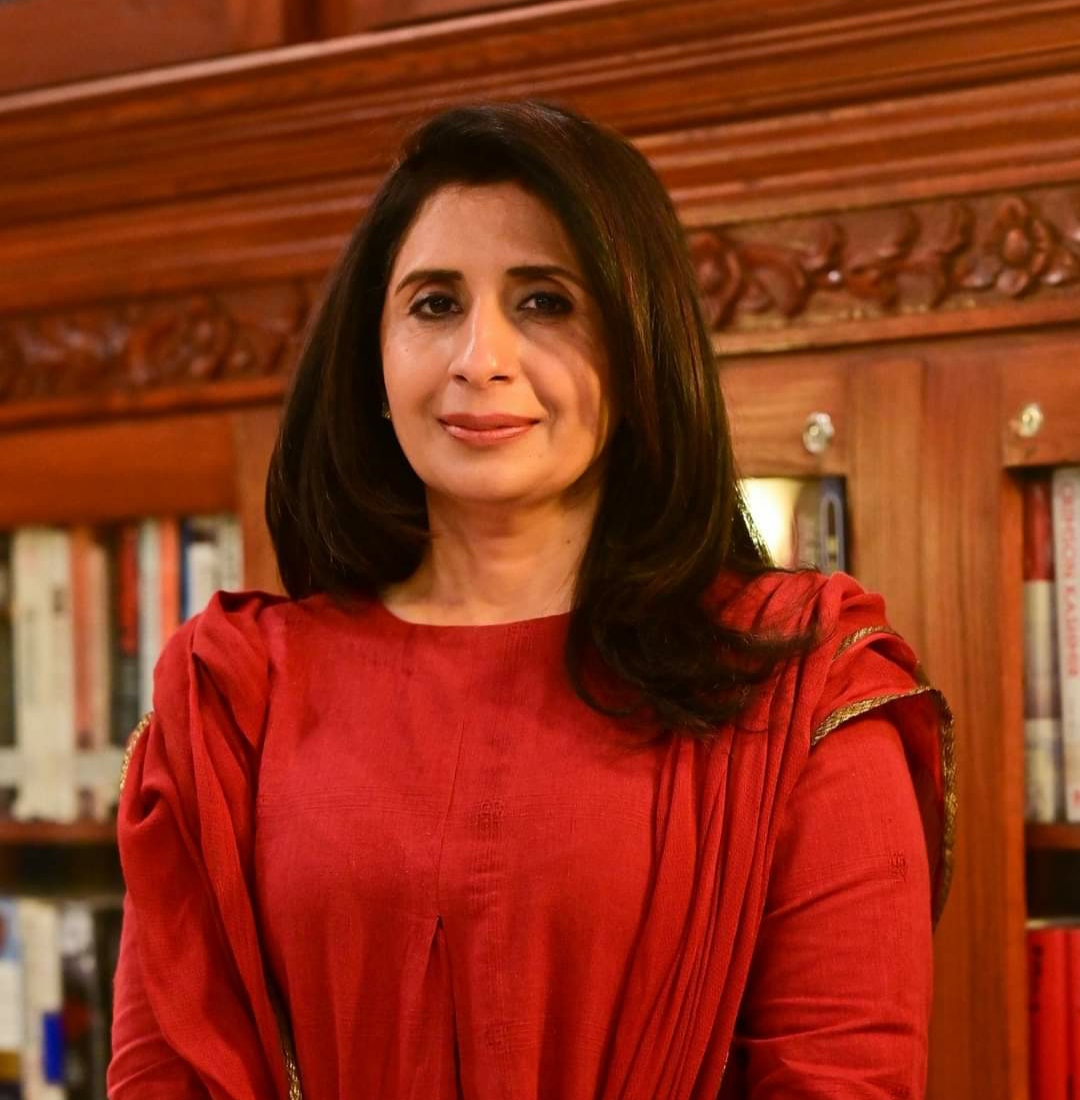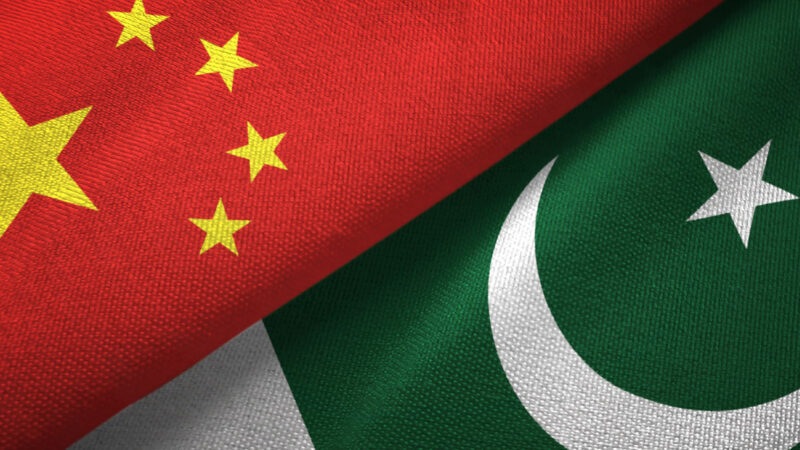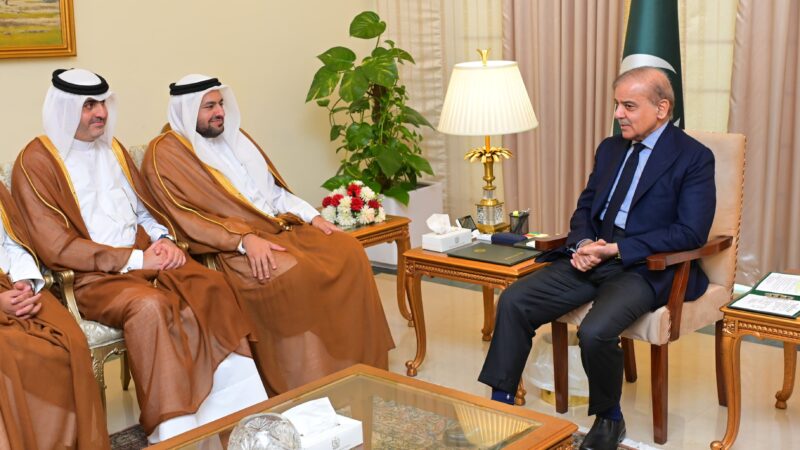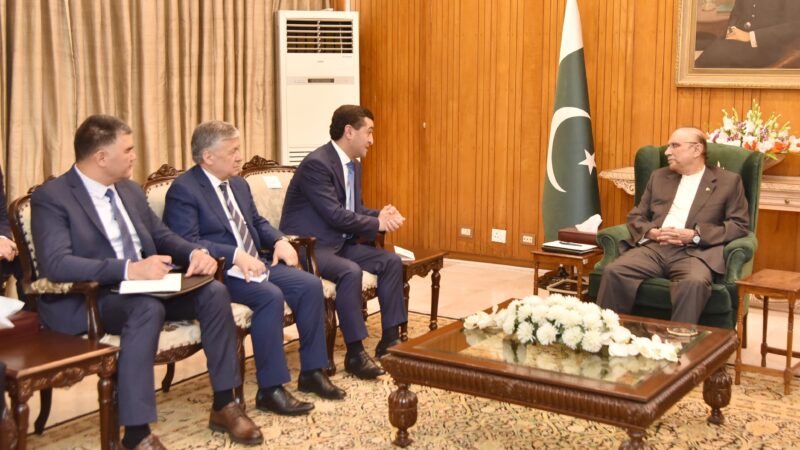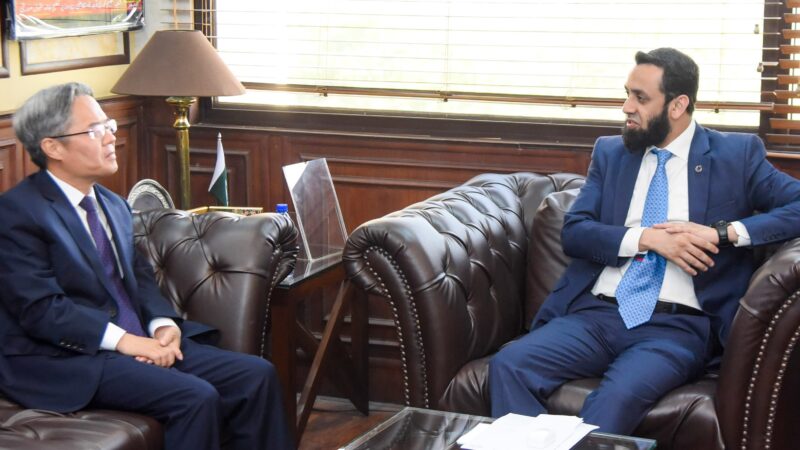Transcript of the Press Briefing by Mumtaz Zahra Spokesperson Ministry of Foreign Affairs
Islamabad, Foreign Minister Mohammad Ishaq Dar is on his first foreign visit. He is in Brussels today, to attend the first Nuclear Energy Summit.
The inaugural Nuclear Energy Summit brings together countries utilizing nuclear energy and provides a platform for international collaboration in the domain of nuclear energy.
At the Summit, Foreign Minister Dar will emphasize the importance of energy security and the need for clean, cost-effective solutions amid rising demands and climate concerns. He will highlight Pakistan’s extensive experience in operating nuclear power plants and its commitment to safety, waste management, and non-proliferation.
The Foreign Minister will call for increased cooperation and support for nuclear energy development, including access to technology, financing, and enhanced IAEA technical assistance for developing countries.
In Brussels, the Foreign Minister will also hold bilateral meetings with leaders and Foreign Ministers of participating countries. He will meet with UK officials in London on his return journey to Pakistan.
On the 18th of March, Pakistan carried out intelligence-based anti-terrorist operations in the border regions inside Afghanistan. The prime target of the operation was terrorists belonging to Hafiz Gul Bahadur Group, which along with Tehrik-i-Taliban Pakistan has been responsible for multiple terrorist attacks inside Pakistan.
The operation of 18 March 2024 was not targeted against the people, institutions or the military of Afghanistan. We respect the sovereignty and territorial integrity of Afghanistan and look forward to working together to find joint solutions in countering terrorism and preventing any terrorist organization from sabotaging bilateral relations between Pakistan and Afghanistan.
Pakistan remains concerned about the ongoing massacre and starvation of the people of Gaza in blatant disregard of international humanitarian law. We strongly condemn the attack by Israel on the Al-Shifa hospital, one of the last remaining and partially-operational healthcare facility in the northern Gaza.
In this merciless attack, nearly a hundred displaced Palestinians, including women and children seeking shelter in the hospital from Israel’s barbaric assault, were reportedly massacred within the already partially destroyed hospital.
Deliberate attack against civilian targets constitute war crimes and crimes against humanity. Israel’s war on hospitals and the ongoing atrocities go against the spirit of the provisional measures decided by the International Court of Justice to protect the people of Gaza.
Pakistan calls for holding Israel accountable for its actions and the UN Security Council to take immediate and effective action to impose a ceasefire and lift the inhumane siege against Gaza.
In Indian Illegally Occupied Jammu and Kashmir (IIOJK), the Indian authorities have embarked upon a campaign to outlaw different Kashmiri political parties. So far, fourteen such outfits have been banned under a counterterrorism law, the Unlawful Activities (Prevention) Act. This long list includes Tehreek-e-Hurriyat Jammu & Kashmir, Muslim League Jammu Kashmir (Masarrat Alam faction), Jammu & Kashmir Liberation Front, Jamaat-e-Islami Jammu & Kashmir, Dukhtaraan-e-Millat, Jammu and Kashmir Democratic Freedom Party, Jammu & Kashmir National Front, Jammu & Kashmir Peoples Freedom League, two factions of Muslim Conference Jammu & Kashmir, and four factions of Jammu and Kashmir People’s League.
Most of these parties have been declared ‘unlawful associations’ during last three months.
Banning of political parties is part of India’s relentless campaign to subjugate the Kashmiri people, suppress dissent, and consolidate its occupation of IIOJK. These actions blatantly violate democratic norms and international human rights and humanitarian law. India cannot suppress the desire and drive of the Kashmiri people for realization of their right to self-determination.
We urge India to remove the ban on all outlawed political parties, and respect the rights and freedoms of the Kashmiri people.
Pakistan will continue to extend political, diplomatic and moral support to our Kashmiri brothers and sisters for the just and peaceful settlement of the Jammu and Kashmir dispute in accordance with the UN Security Council Resolutions.
I thank you!
(Khawaja Nayyar Iqbal, Media Today): Ma’am what is the working nature of the relations between the Pakistani government and the Interim Government of Afghanistan?
(Azaz Syed, Geo News): Ma’am, would you mind sharing further information about the attack which we carried out on the 18th of March. Can you specify the names or the profiles of the terrorists we targeted in that particular attack?
(Siyar Ali Shah, Khyber News): Foreign Office issued a press release regarding these attacks but it was not mentioned in that press release whether these attacks were carried out through missiles or fighter jets. Can you clarify?
(Anas Mallick, Capital TV): The Pakistani Foreign Ministry in its statement eluded that the 18th of March operation was in retaliation to the 16th of March terrorist attack. Was there a diplomatic level communication done prior to the operation Pakistan carried out inside Afghanistan?
Spokesperson: First, I will answer the two questions regarding the communication between Pakistan and Afghanistan. Yes, after the 16th of March terrorist attack in Pakistan, there was communication between the two countries and a demarche was made with the Afghan authorities conveying our serious concern about the involvement of terrorists from the Gul Bahadur group, which was the prime target of our operation of the 18th of March. The same concern was also conveyed by our Foreign Minister in his telephone conversation with the Interim Afghan Foreign Minister.
And yes, the channels of communication between the two countries remain open and our respective embassies are the main channel of communication between Pakistan and Afghanistan.
With regards to the operation of the 18th of March, I would not like to delve into operational details. We would only like to focus on what we have already shared, that this operation that Pakistan undertook was an intelligence-based operation and it was a targeted operation against terrorists belonging to TTP and the Gul Bahadur group. With regards to the question by Mr. Azaz Syed, we would not like to glorify any terrorists and list their names. However, as I have said earlier, our focus was the hideout and sanctuaries of the Gul Bahadur group.
(Naveed Siddiqui, Dateline Islamabad): Pakistan and Afghanistan relations were already strained. Now in reaction they summoned our Charge d’ Affaires and the threats of retaliation are being delivered. How do you see this situation between both the countries? Due to this, millions of dollars of trade has already shrunk and both countries are being affected badly. Will there be any ease of doing business in the future?
Spokesperson: The 18th of March operation was not targeted against the government or institutions or the people of Afghanistan. It was a targeted operation against terrorist hideouts and sanctuaries. Our position has always been to resolve issues through dialogue. Pakistan has said, including in our statement of the 18th of March, that we respect the sovereignty and territorial integrity of Afghanistan and look forward to working together to find joint solutions in countering terrorism and preventing any terrorist entity from sabotaging bilateral relations between Pakistan and Afghanistan.
(Zeeshan Yousafzai, Dunya TV): Ma’am Zabiullah Mujahid refuted all your statements and in an interview said that terrorism in Pakistan is facilitated from within Pakistan; however, to counter public reaction, Afghanistan is blamed. Secondly, he has said that the assertion of the presence of 6000 warriors is also incorrect. What is your response on this?
Spokesperson: First of all, Pakistan has on multiple locations shared concrete evidence and intelligence with Afghanistan on the presence of terrorist sanctuaries inside Afghanistan. And we have for the last several months, called on them and urged them to take action against these terrorist outfits, which continue to threaten Pakistan and Pakistan’s security. Furthermore, it is a reality that terrorists, especially the TTP, have their bases inside Afghanistan and this is not just Pakistan’s assertion, but it has been confirmed by international observers including in a recent report by the United Nations. So we urge Afghanistan to take action, concrete and effective action, against these terrorist sanctuaries and hideouts.
(Sara Zaman, VOA): What is the Foreign Office’s reaction to the demarche that was issued to Pakistan? And also, can you tell us about the state of the border crossings, which are open which are closed and the ones that were closed because of this the aftermath of this incident? When can they be expected to be opened up again?
Spokesperson: As far as my understanding is concerned, the border is stable and peaceful and further details will be shared when we have today’s updates from the concerned departments on the border. On the first part of your question, Pakistan has the same position as what we have said publicly that Pakistan’s operation of 18th of March was not directed against the government, the people or the institutions of Afghanistan. That operation was very focused. It was an intelligence-based operation. It was focused against the hideouts and sanctuaries of the Gul Bahadur group and TTP and Pakistan took this decision to strike against these terror outfits after it became clear that the Gul Bahadur group was involved in the attack on a post inside Pakistani territory, and after realizing that this group has not been effectively countered, inside Afghanistan.
(Mateen Haider, G News): Yesterday our federal cabinet also met with Prime Minister and this issue was discussed. So Prime Minister of Pakistan made a suggestion a joint counterterrorism strategy with Afghanistan. So, if there is any strategy, would you like to share details or any such document has been shared with Kabul?
Spokesperson: First of all, Pakistan has repeatedly called for and conveyed to Afghanistan its desire to have joint solutions to fight the terrorist threat that emanates from Afghanistan and targets Pakistan. This has been on the table with Afghanistan for a while and we hope going forward, the two countries can work together to find joint solutions to combat terrorism.
(Allah Noor, Mashriq TV): Ma’am as the reaction came from Afghanistan after the air strikes. Does Pakistan think that Gul Bahadur and the TTP have got the support of current Afghan government?
Spokesperson: I would like you to refer to the statement that we made on the 18th of March where we expressed concern that there could be some elements which because of their inaction or their support could be facilitating such terror incidents inside Pakistan. And we have urged Afghan authorities to take effective action to ensure that anyone who is a detractor of Pakistan-Afghanistan relations does not succeed in sabotaging this relationship by facilitating these terror groups.
(Luqman Shah, Daily Azkar): Ma’am, as there are more sanctuaries of Gul Bahadur group in Afghanistan and other militant groups like TTP are also active there. It has been said that they were being supported by India. Is Indian support still continuing? And does Pakistan desire to take further action against them?
Spokesperson: Pakistan has repeatedly said that we prioritize dialogue and cooperation in finding solutions to issues of mutual concern and that is why Pakistan has been engaged in conversations and dialogue with Afghanistan to fight the threat that we face that is of terrorism that emanates from these groups which are currently based in Afghanistan. We will continue to engage with Afghanistan so that we are able to defeat these terror groups and the threat that they pose to Pakistan and the friendship between Pakistan and Afghanistan. With regards to your question about India’s support for these terror groups, this is not new. Pakistan has said in the past that India has sponsored and funded terror groups, which target Pakistan and that is a concern which Pakistan has conveyed to Afghanistan and to our interlocutors elsewhere.
(Anas Mallick, Capital TV): In the statement issued by Afghanistan, there was a covert threat and I will just read out from the excerpts it says, “The Islamic Emirate of Afghanistan which has a long experience of freedom struggle against the superpowers of the world does not allow anyone who invaded its territory. Such incidents can have very bad consequences, which will be out of Pakistan’s control”. What is Pakistan’s reaction to this covert threat that has been issued in this statement by Afghanistan?
Spokesperson: First of all, Pakistan has not invaded Afghanistan. We have no designs against the territory of Afghanistan. We respect the territorial integrity and sovereignty of Afghanistan. And we are also interested in having good neighbourly friendly ties with Afghanistan for the mutual benefit of our peoples. It is therefore important that the two countries work together to remove the one major issue that is an impediment in smooth functioning of our bilateral relations and that is the presence of these terror groups which are threatening Pakistan security. And we hope that going forward the two countries can find joint solutions in addressing this terror concern.
(Azaz Syed, Geo News): Ma’am, in your statement, dated 18th March and you have pointed out that there are some elements in the Afghan government supportive of terror groups. Would you mind sharing the elements, the names of the elements who are supportive of these terrorist organizations within the Afghan government?
Spokesperson: First of all, our statement of the 18th of March speaks for itself and that is available for everybody to read, dissect, understand, and interpret. Secondly, our objective is to move forward, to find solutions and to see how the two countries can work together to fight this common threat of terrorism. So, any concerns that we have in this regard, including the specific question that you have asked, we will be discussing through bilateral channels and not through the media.
(Siyar Ali Shah, Khyber News): Ma’am you just said that we should move forward so, does this mean that there will be no such action in the future?
Spokesperson: As I said earlier, for Pakistan it has been important to find common solutions to mutual concerns through dialogue. This has been Pakistan’s position in any bilateral relationship. And that is what we have prioritized dialogue and cooperation in our relations with Afghanistan as well, including on the issue of serious concern such as terrorism. We had to take this action on the 18th of March when we realized that the threat that was being posed by the Hafiz Gul Bahadur group has had become extraordinary and the Government of Afghanistan was unable to take effective action against the Gul Bahadur group and other TTP outfits. I will not respond to any speculative question because we will only take any action in any direction, dialogue or otherwise, depending on the situation that arises. Lastly, I would again emphasize that we hope that Afghanistan will be a partner for Pakistan in responding to this terrorist threat. We should be partners in peace and partners against the threat that is posed by these terrorist organizations.
(Anwar Abbas, Aik News): Ma’am, I want to know that in the press release issued by Zabiullah Mujahid, he talked directly about Pakistani Generals which according to Pakistani law is an offence on which there is imprisonment and punishment. What is your response? So, would a case be registered against Zabiullah Mujahid in his absence?
Spokesperson: I think that statement is an irresponsible statement and we do not even understand what was the purpose of that statement. I must underline that any decision as important as the action of the 18th of March is taken after concerted deliberations within the Government of Pakistan and it has the full ownership of the leadership of Pakistan and I do not wish to comment further on that statement.
(Mateen Haider, G News): Ma’am, as follow up regarding the US house committee hearing regarding alleged irregularity in Pakistani election. Has Pakistan made any demarche with the US on its interference into Pakistan’s internal political affairs?
Spokesperson: We have taken note of the hearing that was held by the US Congress yesterday. It was an internal debate between the US Congress and Administration. As we said last week, Pakistan values its close relationship with the United States and believes in constructive engagement. We believe that the deliberations of legislative bodies should contribute to promoting positive dynamics in bilateral ties and should be based on mutual respect and understanding.
In yesterday’s hearing, some statements were made, which were intrusive and reflected a misunderstanding of Pakistan’s domestic situation and electoral laws. We hope to engage in meaningful discussions with the United States to address these misunderstandings. We also hope that the US Congress will play a positive and constructive role in strengthening Pakistan-US ties and developing avenues of mutually beneficial cooperation.
(Afzal Reza, IRNA): My question is regarding yesterday’s Donald Lu’s statement on the Iran Pakistan relationship, especially on the IP case. How does Pakistan see such a statement from the US official against the brotherly relationship between two countries and again US took position against the important project between two countries?
(Sarah Zaman, VOA): So, Donald Lu also said that at least they haven’t seen Pakistan applying for a US waiver, which would be necessary. So, what’s the situation on that? If Pakistan is going ahead with the pipeline with Iran, why hasn’t Pakistan so far applied for that waiver?
Spokesperson: First, Pakistan has time and again, reaffirmed its commitment to the Iran-Pakistan pipeline and the bilateral understanding between Pakistan and Iran. We recognize its significance for Pakistan’s energy security. It is important to note that the decision by the Government of Pakistan to move forward on the Iran-Pakistan pipeline is within Pakistan’s sovereign decision to construct a pipeline within its own territory. It is a segment of the pipeline which is being built inside Pakistani territory. So, we do not believe that at this point there is room for any discussion or waiver from a third party. However, we have remained in contact with our American partners, and we have conveyed to them the importance of energy security for Pakistan’s future and the important role that Pakistan-Iran pipeline plays in the overall context of Pakistan’s energy security.
(Sarah Zaman, VOA): Even if there is no need for a waiver at the moment to build the pipeline, there would still be a need once the trade begins. So, what’s the point of building a pipeline and then not being able to use it? If Pakistan feels that, you know, building is all that it needs right now?
Spokesperson: As I said, this question is premature. Our first priority is to build the pipeline to which Pakistan is committed and has decided to build the pipeline.
(Anas Mallick, Capital TV): Two separate questions. Firstly, with regards to the ongoing visit of the Foreign Minister, you said that there will be bilateral meetings. Can you specify with whom he is scheduled to meet and who will be the officials that he will be meeting on the way back in London? That’s number one. Number two is with regards to yesterday’s attack in Gwadar that is claimed by Baloch terror organization, the BLA. On the 18th of January, Pakistan carried out strikes inside Iran against some Baloch terrorists. Would Pakistan be carrying out a similar operation in response to the attack that happened yesterday in Gwadar on the security installation?
Spokesperson: Regarding yesterday’s terrorist attack if you have seen the readouts from our security agencies, our security agencies successfully eliminated the terrorists involved. Secondly, Pakistan remains committed to protecting all projects of CPEC and including the Gwadar port. Thirdly, Pakistan believes that these terror organizations, including BLA, are a threat for the entire region. And we would like to work with our neighbouring countries in defeating this terror threat.
Anas Mallick: First question madam?
Spokesperson: Regarding Foreign Minister’s visit, some meetings have been finalized others are in the process of finalization. I would not like to prematurely announce those meetings.
(Farhan Ali, Public News): My question is India’s Home Minister Amit Shah recently stated, “Both Muslims and Hindus of Pakistan Occupied Kashmir are our own.” How do you comment on that statement?
Spokesperson: The remarks by India’s Home Minister are unwarranted. They are based on a fallacy that Jammu and Kashmir belongs to India and that is far from truth. It is far removed from the reality. Jammu and Kashmir is an internationally recognized disputed territory, whose final disposition is to be made in accordance with the wishes of the people of Jammu and Kashmir and the relevant UN Security Council resolutions. It is also far removed from the reality about the relations of Azad Jammu and Kashmir. Instead of staking claims over the Azad Jammu and Kashmir, it is important that India respects the rights of the people of Indian Illegally-Occupied Jammu and Kashmir and lift restrictions that impede the realization of their right to self-determination as guaranteed to them under UNSC resolutions.
(Naveed Siddiqui, Dateline Islamabad): Donald Lu yesterday also spoke about the ban on social media, especially on X and freedom of press. Plus, Mr. Lu also said that US continues to monitor weapons it provides to Pakistan specially F-16 to ensure their correct use and currently, US is not considering any substantial military assistance to Pakistan. Your comments, please?
Spokesperson: Regarding your first question, I would advise you to contact PTA because they are the relevant department with respect to the social media in Pakistan. On the second question, I would like to first underline that yesterday’s hearing was an internal event of the United States where the Congress and the administration were engaged in a conversation. As far as Pakistan is concerned, Pakistan remains in dialogue with the United States on all aspects of our mutual interest and that includes cooperation in the realm of security and defence, and we will continue to engage with them with respect to our defence needs and the regional situation that Pakistan faces. And we hope they will understand our concerns and requirements.
(Azaz Syed, Geo News): Ma’am One of the members of the Committee asked a question from Donald Lu that is there a swap of Dr. Aafia Siddiqui and Dr. Shakil Afridi in plans with Pakistan? Donald Lu answered that no Pakistani official has proposed the swap of prisoners of the two countries. Has Pakistan made any proposal in this regard or intends to propose the subject swap?
Spokesperson: First of all, the case of Mr. Shakil Afridi is being dealt with according to the laws of Pakistan. He is in prison as a result of the legal processes and a decision by the courts of Pakistan. Pakistan’s position with regards to the case of Shakil Afridi hasn’t changed. And regarding Dr. Aafia Siddiqui, Pakistan has remained in contact with the US State Department, the Department of Justice and the Bureau of Prisons to extend all possible support for Dr. Aafia Siddiqui for her welfare and to explore all options with regards to her continued stay in the United States. Our Missions in Washington and Houston have also remained in continuous contact with the family of Dr. Aafia Siddiqui and her legal team.
(Sarah Zaman, VOA): But would Pakistan be interested or is Pakistan interested in a swap like this because we saw that the readout that was issued when Mr. Shehbaaz Sharif met with Donald Blome he also discussed Aafia Siddiqui. So, if Aafia Siddiqui is such a priority for Pakistan, has there been any discussion of how to make her release happen? So, number one, as a supplementary, is Pakistan actually interested or willing in such a swap?
Secondly: There was also a question about having the ambassador meet Mr. Imran Khan in jail. Would the Government of Pakistan be willing to facilitate something like this because the Ambassadors usually do meet important politicians and Pakistani leaders in Pakistan. He is also an important leader in Pakistan. So, would the government be willing to facilitate such a meeting?
Spokesperson: Regarding your second question, that decision will be taken in light of Pakistani laws and the courts which will determine the access of a foreign national to any prisoner. So, I do not have any comments to offer in that respect. With regards to your first question, I would like to underline that Pakistan’s priority is that of relief for Ms Aafia Siddiqui and this is a subject of great concern to Pakistanis everywhere. As regards to any swap ideas that you have referred to, these issues are discussed through bilateral channels and not through the media. At this point, I would like to reiterate what I said about the case of Mr. Shakeel Afridi, that he there is no change in Pakistan’s position. Mr. Shakeel Afridi is in prison as a result of a court decision the court determined that he violated Pakistani law.
(Ali Hussain, Business Recorder): My question is regarding Russian President Vladimir Putin recently winning the election, but we haven’t seen any statement from Pakistan facilitating him on his victory in the election.
Spokesperson: I think you are mistaken. If you would have been following the President and the Prime Minister have congratulated the Russian president on his re-election and on that public statements were issued by their offices.
(Javed Hussain, 92 News): Ma’am, as we are talking about American Deputy Foreign Minister Donald Lu. He said regarding the cipher case that former Prime Minister’s statement or case was based on the lies. The Spokesperson of the Government of Pakistan, Information Minister also endorsed it. What is the stance of Foreign Office on this?
Spokesperson: I would not like to comment further on what our Minister for Information has already said. Pakistan’s Foreign Office has made its position clear in the past on several occasions. As far as the political aspects of this case are concerned, I would like you to refer to the statement made by Minister for Information yesterday.
(Mohammad M.A.Elakkad, Sputnik News Agency): In the last few years we have seen some progress in the relationship between Pakistan and Russia, especially after submitting the oil shipment from Russia to Pakistan and now after forming the new government and the winning of the President Putin in the presidential election of Russia, will we see more progress in the relationship between Pakistan and Russia especially in the energy sector? And is there any progress in Pakistan joining BRICS group?
Spokesperson: First, Pakistan has applied for its membership of BRICS, as we have conveyed to the media earlier, and we hope that BRICS will make a decision in light of its proclaimed objective of inclusive multilateralism. With regards to your first question, Pakistan has positive friendly ties with the Russian Federation. These relations have grown in recent years, and the two sides have exchanged in the recent months and years, a number of high-level delegations including the visit of our parliamentary leaders and Foreign Ministers. We would like to continue on this path and further develop Pakistan- Russia relations including cooperation in the energy domain.
(Mateen Haider, G News): Ma’am, brief statement was issued on the Foreign Minister Ishaq Dar’s participation in Nuclear Security Summit. So what stands what new position Pakistan will be presenting in this? Does Pakistan hope to benefit from this summit in terms of cooperation from the developed countries as far as green energy is concerned?
Spokesperson: So, as I said in my opening remarks, this Nuclear Energy Summit brings together countries utilizing nuclear energy and provides a forum for international collaboration in the domain of nuclear energy. At the summit, the Foreign Minister will emphasize the importance of energy security and the need for clean, cost effective solutions amid rising demands and climate concerns. He will highlight Pakistan’s extensive experience in operating nuclear power plants and its commitment to safety, waste management and non-proliferation. The Foreign Minister will call for increased cooperation and support for nuclear energy development, including access to technology, financing, and enhanced IAEA technical assistance for developing countries.
Pakistan undertook an IBO against terrorists belonging to TTP and HGB group. Mumtaz
